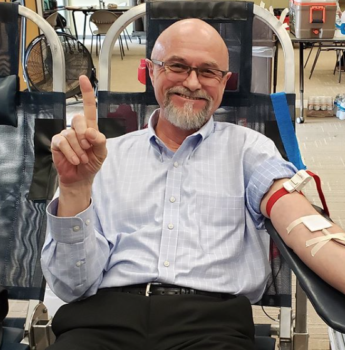 Northwest Vista College not only educates students, but it helps to saves lives in San Antonio.
Northwest Vista College not only educates students, but it helps to saves lives in San Antonio.
Since 2016, through blood drives on campus, 3,775 donors helped to save 11,325 lives, according to the South Texas Blood & Tissue Center.
In 2019, NVC had its biggest year and 1,288 students, employees and faculty donated blood – a 31% increase from the previous year. From 2016 to 2019, the five campuses that make up Alamo Colleges had 7,269 donors give blood, which resulted in saving over 21,000 lives. During a typical semester, there are several blood drives at each of the campuses – Northwest Vista College, San Antonio College, St. Philip’s College, Palo Alto College and Northeast Lakeview.
But there are more lives to be saved. And now is an even more critical time. To start off the year, the South Texas Blood & Tissue Center experienced a shortage. Typically during the holidays, donations decline and many college campuses are closed. Students are a big supplier of blood. Several local hospitals had trauma cases recently that used dozens of units of blood, wiping out inventories.
Approximately 60% of the population is eligible to give blood at any one time, but less than 5% of those who are eligible actually make a donation. While all blood types are needed, the demand is especially high for type O-negative donors. O-negative donors make up just 7% of the population, but because O-negative blood can be used for any patient in an emergency, 12% of the orders from South Texas hospitals are O negative.
To encourage more students to donate, NVC and its sister colleges are taking on a new challenge. Each campus has a goal to snag about 10% of its daytime enrollment. In return, the South Texas Blood and Tissue Center will match the amount of blood given for food or supplies for each campus’ food pantry. In the last few years, food pantries were started at Northwest Vista College, San Antonio College, St. Philip’s College, Palo Alto College and Northeast Lakeview to respond to the rising need of students not able to eat on a daily basis.
“We want to be a resource for students. It’s important not just to come to campus and ask for blood. If you are putting blood on our shelves, we want to put food on the shelves of your food pantries,” said Vanessa Gonzales, a donor recruitment consultant with the South Texas Blood & Tissue Center.
The next blood drive on campus is Feb. 24-25.
